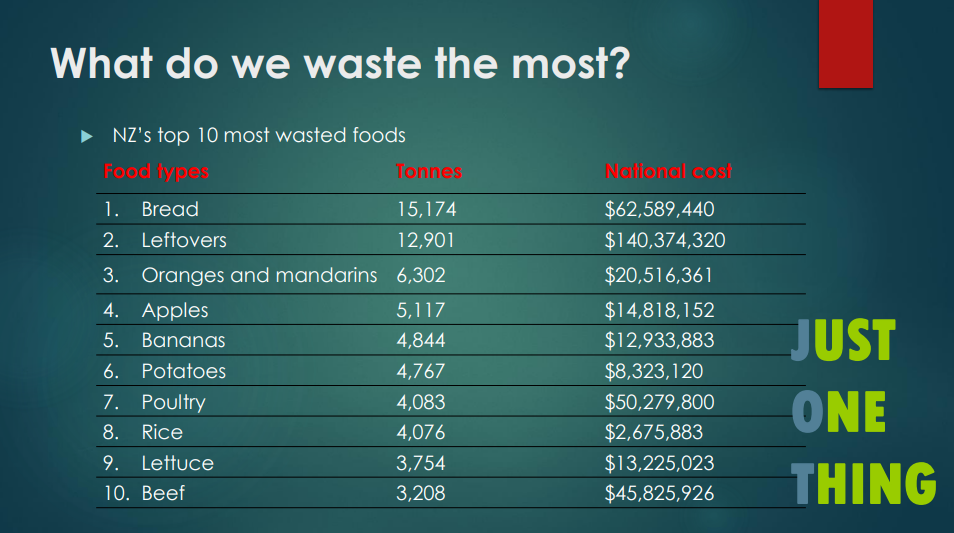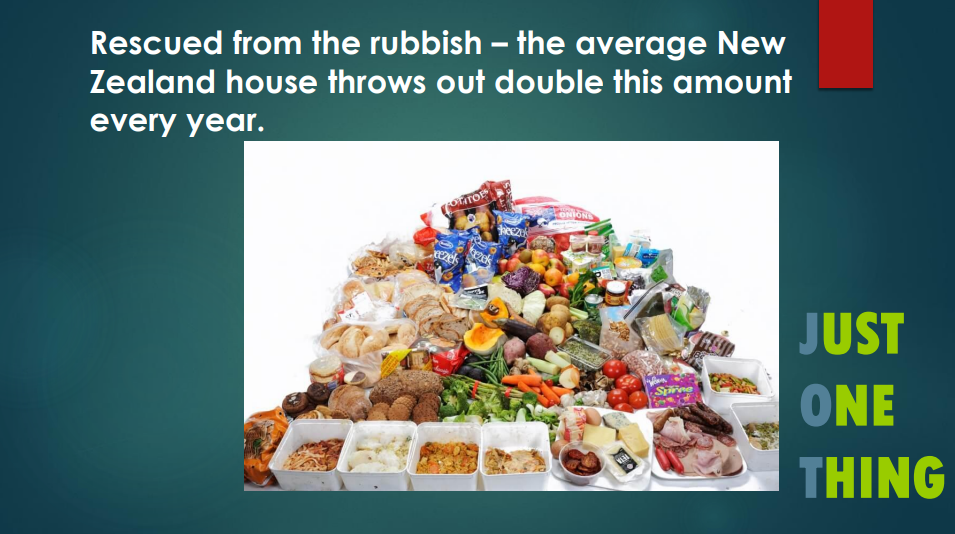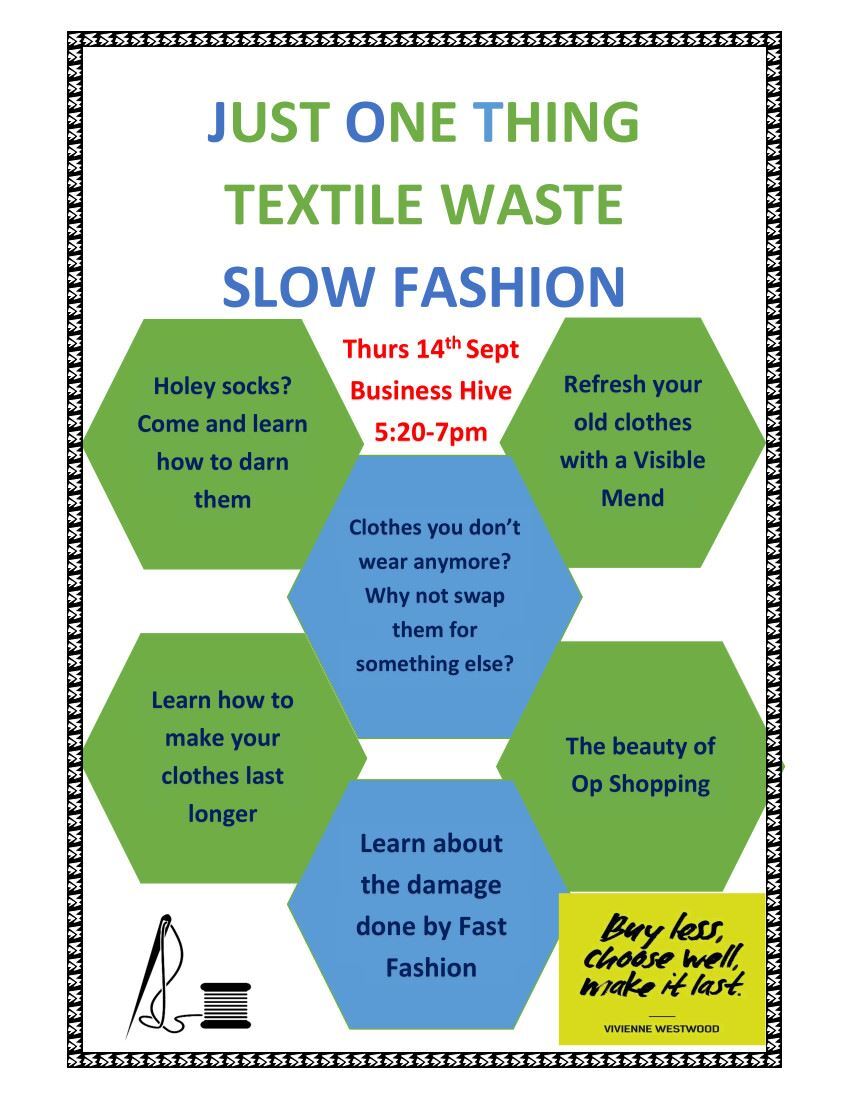Just One Thing tackles the issue of food waste
Staff Reporter
01 September 2023, 6:00 PM
 Nia Haf provided insight into how lessening food waste can create bigger profits in the hospitality industry, as well as passing on some recipes at a Just One Thing event about food waste . PHOTO: Alex Regtien
Nia Haf provided insight into how lessening food waste can create bigger profits in the hospitality industry, as well as passing on some recipes at a Just One Thing event about food waste . PHOTO: Alex RegtienAbout one third of the food produced for human consumption is wasted globally, the UN Environmental Programme estimates.
This was one of the many sobering statistics presented by facilitators Ruth Davison and Ann Brown at community sustainability group Just One Thing Waitaki's first meeting last month at Ōamaru's Land SAR meeting rooms.
The group launched at The Business Hive in mid-July, with the aim to create a safe space for sharing, strengthening connection and breaking down sustainability measures into manageable actions, by doing Just One Thing.
A small but engaged group were told about the many issues surrounding food waste, from the heartbreaking squandering of perfectly good food and the staggering financial cost to NZ households, to the environmental impacts of its production - the energy and water to grow and harvest it, packaging waste, emissions from its distribution followed by its subsequent disposal, mostly in landfill.

STATISTICS: https://lovefoodhatewaste.co.nz
Although food is wasted at all stages of the supply chain, from farms and factories to the excess supermarkets throw out, the largest proportion of food wasted in New Zealand comes from households.
According to the website Love Food Hate Waste we throw away 157,398 tonnes of food annually. To put that into perspective, the same amount of food could feed the population of Dunedin for nearly three years.
Wasting this food costs the average household $644 a year. A sad fact, considering the current cost of living crisis currently affecting New Zealand.
"If food goes into landfill to rot it also produces methane, a greenhouse gas even more potent than carbon dioxide," Ruth said.
According to the World Wild Life Organisation, about 6-8% of all human-caused greenhouse gas emissions could be reduced if we stop wasting food. In the United States alone, the production of lost or wasted food generates the equivalent of 32.6 million cars’ worth of greenhouse gas emissions.

Nia Haf from Ngapara also gave a talk on utilising food "waste" in cooking - everything from fruit and veggie scraps, to bread and aquafaba (the liquid in cans of beans and chickpeas).
Her previous experience as a chef in hospitality played a big part in her attitude to food waste, Nia said.
"KPI’s from my previous employers included expectations around reducing food wastage in the kitchen to cut costs in those businesses, which I achieved with great results."
The group also shared ideas for minimising food waste that included:
Reducing what we buy when shopping (particularly perishable items). Buy only what you can eat/need. If you find you have too much and it will be wasted, freeze it, donate it or share with others. Compost the bits that can’t be eaten.
Relocating unwanted produce by exchanging garden produce at Waitaki Crop Swap (it’s on the first Saturday of every month, Ardgowan Hall. Starts at 10 am, swap at 10:30) or swap with family, friends and neighbours.
Recycling scraps and leftovers in more tasty inventive ways e.g. Veggie Chips: If you’re a fan of peeling veggies (potatoes, carrots, beets), lay the peelings on a baking tray, drizzle with any oil, sprinkle with salt, pepper and any herbs or spices you like or have on hand. Bake in the oven until golden and crisp for a free veggie chip snack.
Reusing non-edible scraps via composting - Reuse some of the non-edible scraps in the garden; eggshells deter slugs and snails. Crushed egg shells can be put under grapevines to encourage good fruiting. Walnut shells can just be thrown in the garden.
Rethinking ways of repurposing and reducing waste.
The next JOT meeting will be held Thursday, September 14, 5.20pm (for a 5.30pm start) at The Business Hive. The theme is textile waste and solutions around it, Anne said.
“We’ll explain the issues briefly then we have various guests explaining and demonstrating some of the solutions. These include op shopping, caring for our clothes, learning how to darn that holey sock and visible mending,” she said.
“If there are any wonderful sewers (needle and thread type) amongst you, that could demonstrate visible mending like putting in a patch, please get in touch.”
Ruth said they would also like to have a clothes swap.
"Where we bring two or three good quality items from our wardrobe that haven't been worn for ages. We would then swap them for a 'new to you' piece. Obviously, they need to be clean and gorgeous," she said.
“We are all about practical solutions to these issues so we look forward to having a fun evening with you all. Please spread the word! We’re looking forward to seeing you on the 14th September. Let us know if you are coming, just so we have some idea how many cups to put out for tea and coffee.”
For more information see the Just One Thing Facebook page or email Ruth and Ann @ [email protected]

